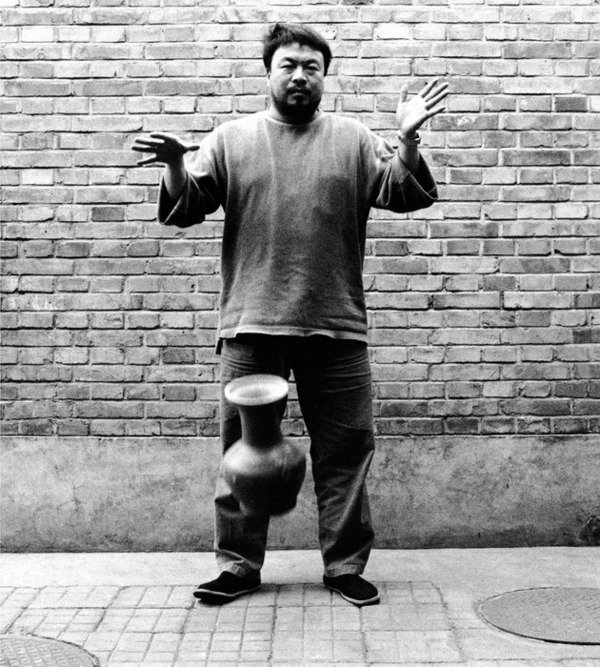Ai Weiwei
dal 16/9/2011 al 14/1/2012
Segnalato da
Universalmuseum Joanneum Press Office
16/9/2011
Ai Weiwei
Kunsthaus Graz am Landesmuseum Joanneum, Graz
Interlacing. The artist has tirelessly documented everyday realities of the urban environment and society in China, and discussed them in blogs and twitters. The photographs of the radical changes to the urban built fabric, the search for earthquake victims, and the destruction of his Shanghai studio are presented along with art-photographic projects, the documenta Fairytale project, the countless blog and mobile-phone photographs. The exhibition is accompanied by an extensive book of material and archives.

curated by Urs Stahel and Ai Weiwei
The first large-scale exhibition of Ai Weiwei's photographic and video work—taken over from the Fotomuseum Winterthur—puts the spotlight on Ai Weiwei the communicator and indefatigable remembrancer, the documenting, analysing, interlacing and multichannel-communicating artist. Even in his New York period (1983–1993), Ai Weiwei took photographs, but especially since his return to Beijing, he has tirelessly documented everyday realities of the urban environment and society in China, and discussed them in blogs and twitters. The photographs of the radical changes to the urban built fabric, the search for earthquake victims, and the destruction of his Shanghai studio are presented along with art-photographic projects, the documenta Fairytale project, the countless blog and mobile-phone photographs. The exhibition is accompanied by an extensive book of material and archives (published by Steidl, Göttingen).
Ai Weiwei is a generalistic, conceptual, socio-critical artist, dedicated to friction with and the design of realities. As an architect, conceptual artist, sculptor, photographer, blogger, Twitterer and interview artist and political activist, he is a seismograph for current themes and social problems: a great multiplicator and communicator, who leads a life for art and art as life.
Ai Weiwei was born in 1957, the son of poet Ai Qing. After studying at the Beijing Film Academy, in 1978 he and others founded The Stars artist collective, which rebelled against Socialistic Realism and came out in favour of artistic individuality and experimenting in art. In 1981, Ai Weiwei went to the USA, and in 1983 to New York, where he studied under painter Sean Scully at the Parsons School of Design. In New York, he discovered artists such as Allen Ginsberg, Jasper Johns, Andy Warhol and above all Marcel Duchamp. Duchamp was important to him because he saw art as a part of life. The result was his first ready-mades and thousands of photographs documenting his stay and those of his Chinese artist friends in New York. When his father fell ill, Ai Weiwei returned to Beijing in 1993. In 1997, he co-founded the China Art Archives and Warehouse (CAAW) and began to take an interest in architecture. In 1999, he opened a studio of his own in Caochangdi, and in 2003 founded the FAKE Design architecture studio. The same year, he was substantially involved with Swiss architects Herzog & de Meuron in the construction of the Olympic Stadium, the so-called Bird's Nest, which after its completion became the new emblem of Beijing. In 2007, at his prompting, 1001 Chinese travelled to Kassel for documenta 12 (Fairytale). In 2010, he astonished the world with his large, formally Minimalist-arranged carpet at the Tate Modern, made of millions of sunflower seeds made of hand-painted porcelain.
At all times, every society in this world, in the past, present and future, needs singular, outstanding figures such as Ai Weiwei in order to remain alert and be shaken into wakefulness, to recognise its own rigidity and to avoid its own tunnel vision. We are delighted that this great thinker, designer and warrior was released from arrest on 22nd June 2011.
The exhibition was organised by the Fotomuseum Winterthur. Curator: Urs Stahel. From 21st Feb. to 29th April 2102, it will be on show at the Jeu de Paume in Paris.
Image: Ai Weiwei, "Dropping a Han-Dynasty Urn," 1995 (detail). © Ai Weiwei.
Universalmuseum Joanneum, Press Office
presse@museum-joanneum.at
Mariahilferstraße 4
8020 Graz, Austria
P +43-316/8017-9211 und +43-664/8017 9211
F +43-316/8017-9253
Opening: 17 September 2011, 11am
Kunsthaus Graz
Lendkai 1 - 8020 Graz, Austria
Opening hours: Tues–Sun., 10am–6pm
Admission: Adults € 8
Groups of 7 or more, senior citizens, conscripts and those doing civilian service, people with disabilities € 6
School pupils, apprentices, students under 27 € 3
School pupils in class groups € 1.50
Family ticket (2 adults and children under 14) € 16
Children under 6 free



